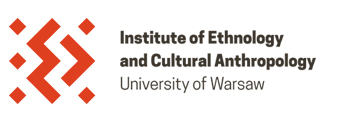На першому засіданні Міждисциплінарної групи постколоніальних досліджень ми почуємо людей, причетних до формування політичних та інтелектуальних проявів українського суверенітету. Їхні голоси стануть провідниками до української пам'яті та повсякденності - складності місць, де вони живуть і звідки говорять. Таким чином буде вирішуватися питання деколонізації та мови і практик, які її уможливлюють.
Боротьба та опір українців є відповіддю на триваючу військову агресію та територіальні анексії з боку Росії з 2014 року, на пропагандистську та дезінформаційну кампанію, спрямовану на стирання української ідентичності та політичного самовизначення. З іншого боку, вони є відповіддю на геополітичні дискурси, які ігнорують активність самих українців.
Опір буває військовим, інтелектуальним, або заснованим на афективних та солідарних соціальних практиках. Тому ми хочемо запитати: як українці розуміють солідарність? Яких форм набуває "локальна агенція" колективів, що борються за збереження життя в Україні? Як антиколоніальний опір може виражати складність (мовну, культурну, політичну) та демократичний імпульс, не скочуючись до біполярного світогляду воюючих імперій?
біографія:
Валерія Бураджиєва - незалежна кураторка, арт-менеджерка та дослідниця з досвідом роботи в галузі культурології та перформансу. Вона родом з Бердянська, Україна, і співпрацювала з ІЗОЛЯЦІЄЮ (Соледар, Україна), Диким театром (Київ, Україна) та Центром мистецьких досліджень Milvus (Кніслінге, Швеція), серед інших. Валерія є співзасновницею та членкинею редакційної команди часопису Soniakh Digest: https://soniakh.com/
Доктор Юлія Буйських - історик та соціокультурний антрополог, співробітниця Інституту історії України Національної академії наук України та громадської організації "Центр прикладної антропології" у Києві. Голоси та досвіди "локальних" науковців: Як ми говоримо про війну
Олександр Федоришен - історик, директор Центру історії Вінниці (2017-2021), директор Музею Вінниці, відповідальний секретар Ради з питань історії, культурної спадщини та топоніміки при Вінницькому міському голові: „Деколонізація у Вінниці: перші підсумки”
